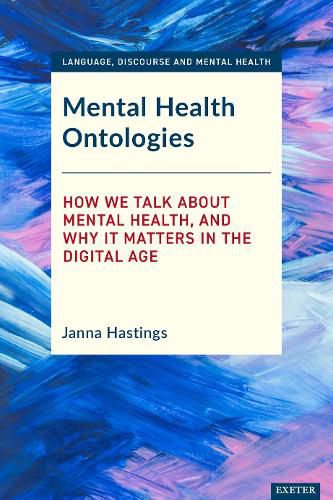Readings Newsletter
Become a Readings Member to make your shopping experience even easier.
Sign in or sign up for free!
You’re not far away from qualifying for FREE standard shipping within Australia
You’ve qualified for FREE standard shipping within Australia
The cart is loading…






This title is printed to order. This book may have been self-published. If so, we cannot guarantee the quality of the content. In the main most books will have gone through the editing process however some may not. We therefore suggest that you be aware of this before ordering this book. If in doubt check either the author or publisher’s details as we are unable to accept any returns unless they are faulty. Please contact us if you have any questions.
Mental health presents one of the defining public health challenges of our time. Proponents of different conceptions of what mental illness is wage war for the hearts and minds of patients, practitioners, policy-makers, and the public. Debate and fragmentation around the nature of the entities that feature in the mental health domain divide resources and reduce progress. The way mental health is publicly discussed in the media has tangible effects, in terms of stigma, access to healthcare and resources, and private expectations of recovery.
This book explores in detail the sorts of statements that are made about mental health in the media and public reporting of scientific research, grounding them in the wider context of the theoretical frameworks, assumptions and metaphors that they draw from. The author shows how a holistic understanding of the way that different aspects of mental illness are interrelated can be developed from evidence-based interpretation of the latest research findings. She offers some ideas about corrective, integrative approaches to discussing mental health-related matters publicly that may reduce the opposition between conceptualisations while still aiming to reduce stigma, shame and blame. In particular, she emphasises that discourse in the media needs to be anchored to an overview of all the research results across the field and argues that this could be achieved using new technological infrastructures.
The author provides an integrative account of what mental health is, together with an improved understanding of the factors driving the persistence of oppositional accounts in the public discourse. The book will be of benefit to researchers, practitioners and students in the domain of mental health.
$9.00 standard shipping within Australia
FREE standard shipping within Australia for orders over $100.00
Express & International shipping calculated at checkout
This title is printed to order. This book may have been self-published. If so, we cannot guarantee the quality of the content. In the main most books will have gone through the editing process however some may not. We therefore suggest that you be aware of this before ordering this book. If in doubt check either the author or publisher’s details as we are unable to accept any returns unless they are faulty. Please contact us if you have any questions.
Mental health presents one of the defining public health challenges of our time. Proponents of different conceptions of what mental illness is wage war for the hearts and minds of patients, practitioners, policy-makers, and the public. Debate and fragmentation around the nature of the entities that feature in the mental health domain divide resources and reduce progress. The way mental health is publicly discussed in the media has tangible effects, in terms of stigma, access to healthcare and resources, and private expectations of recovery.
This book explores in detail the sorts of statements that are made about mental health in the media and public reporting of scientific research, grounding them in the wider context of the theoretical frameworks, assumptions and metaphors that they draw from. The author shows how a holistic understanding of the way that different aspects of mental illness are interrelated can be developed from evidence-based interpretation of the latest research findings. She offers some ideas about corrective, integrative approaches to discussing mental health-related matters publicly that may reduce the opposition between conceptualisations while still aiming to reduce stigma, shame and blame. In particular, she emphasises that discourse in the media needs to be anchored to an overview of all the research results across the field and argues that this could be achieved using new technological infrastructures.
The author provides an integrative account of what mental health is, together with an improved understanding of the factors driving the persistence of oppositional accounts in the public discourse. The book will be of benefit to researchers, practitioners and students in the domain of mental health.